Those who are advocates of disability would understand the excitement when an awareness program or an advocacy initiative reaches out to those who are not directly affected with it. When a campaign or a video, changes a little something in people and help them understand disability a little better, we as parents are the happiest!
There have been many initiatives for creating awareness in the society at large for disability. But these are mostly created by people who have a loved one with a disability than those who do it for a living. We often see only home videos, home documentaries or short movies which stay within the community and are mostly lost in the ever so mounting creative world of commercial documentaries and films. The result? We keep converting the already converted but somehow our voices don’t reach to the society, which our children are going to be a part of eventually.
This all was going in my head when I was told about an Indo-Australian documentary, which was being made to spread awareness. And they wanted to cover Aarshia. I felt a little pinch in my heart because of the general destiny of films on disability! But since It was being made by my two fellow mothers, one, the gorgeous ‘Mitu’ who does films for a living and the other, super talented ‘Cate Sayer’, founder of e.motion 21(The exclusive dance group of people with DS) and I know that together, they can be a deadly team! I knew the project was in great hands. And my over-anxious head about the fate of our movie got some more peace when I heard the name of the director. Onir! Really? Onir!
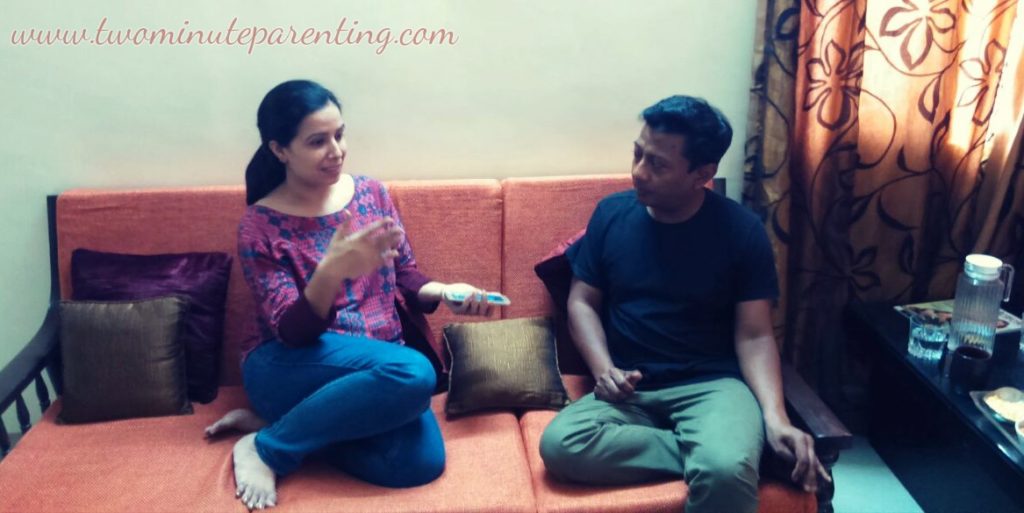
I knew Onir. Who doesn’t? He is an Indian film director, editor, screenwriter, and producer. He is best known for his film My Brother…Nikhil, based on the life of Dominic d’Souza, and one of the first mainstream Hindi films to deal with AIDS. Onir’s most recent film ‘I Am’ which consists of four short films exploring such themes as single motherhood, displacement, child abuse and same-sex relationships, won the National Award . He has also won I-VIEW 2010s Engendered Award (New York) for Outstanding Contribution. Onir was awarded the 2008/9 Triangle Media Group Honorary Award on 7 February 2010 and won Best Film awards at both the London Asian Film Festival and the River to River. Florence Indian Film Festival and IRDS film award for Best director for social concern! What a resume! but what I liked the most was that he enjoys the reputation of a sensible and sensitive filmmaker which frankly, not many in the film industry can claim to have.
I was happy and worried, wondering if he is only making it out of sympathy or for awards? And if he really knows what he is doing by committing to something like this. In short, does he know how the right and the wrong portrayal of disability can ruin the work of a few years?
The good part was, I was meeting him before the shoot to have all my queries answered! I was still unsure if I could be convinced when he knocked at the door. But I was surprised to see this really simple man with a wonderful smile extending his hand, as soon as I opened the door. The moment I started talking to him, I realised how super humble and incredibly modest man he was. I obviously communicated my apprehensions and was happy to be convinced with his vision. The good part? Before we had our second tea, I knew we had a winner and a champion for our cause!
I was onboard in less than 20 minutes and we mutually decided on a date for the shooting!
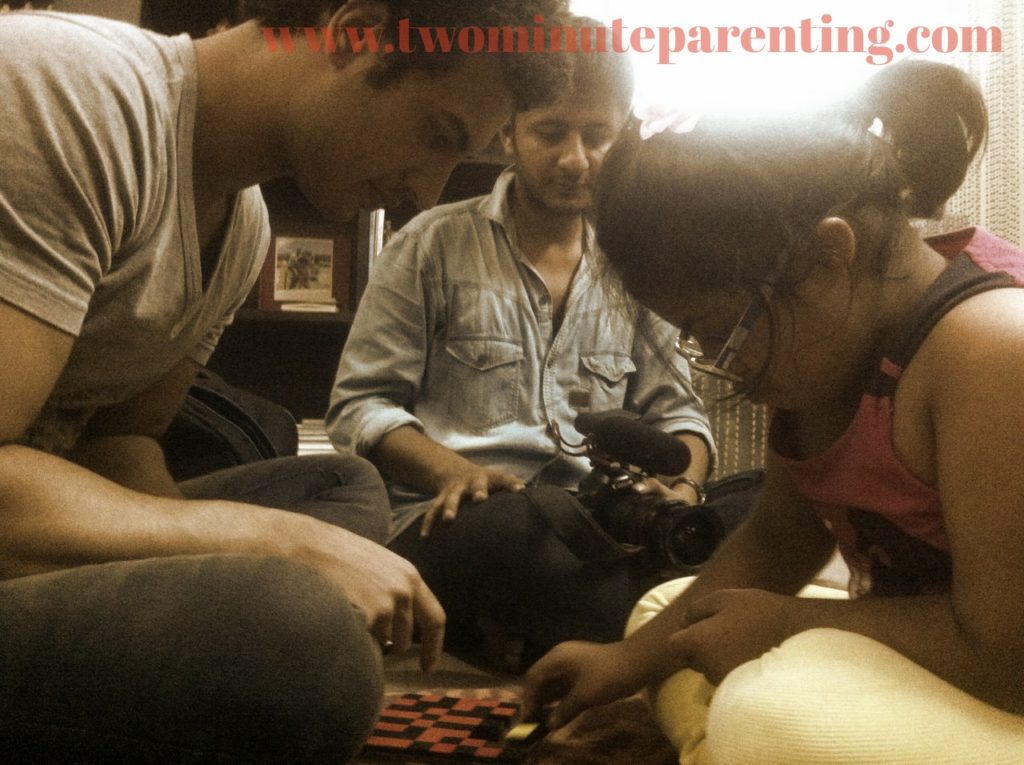
Shooting can make you a little nervous, especially if you are not wanting to make a career in films 😉 I had all the reasons to be fidgety and anxious because my personal life was going to be in public domain? I was going to have a National Award Winning director with his team shooting in my humble abode, filming our daily life. It was surely something to be edgy about. But to my surprise as soon as I met him and his super talented team on the morning of the scheduled day, I calmed down! He comforted us all with his modest ways, and his team which had wonderful and passionate people like Nikunj Rathod, Zain and Aashish, made sure Aarshia was not only comfortable but was excited too.
When analysing people and situations become your side job you can be quite a pain for people and since I am a degree holder in this stream, I decided to put this to good use and ask Onir a few more questions which were troubling me. Honestly, I was a little intrigued in my head! Why would someone like him would want to make a movie on Down Syndrome? And I don’t need to tell what an absolutely amazing time I had, talking to this wonderful man and here is a little glimpse into our conversation. Hope you’d enjoy it too…
Why do you want to make a documentary on Disability, more specifically on Down syndrome?
What has always influenced me about documentaries is that I like to make films based on real life stories which also have a certain human element. Last time I made a documentary was in1991. So this is actually like making a documentary after 25 years. Though it was accidental but it didn’t take me more than a minute to be on the project.
I was meeting my friend Meetu, who distributes Indian films in Australia. We were catching up and talking about my next film release there. She just happened to mention that they are trying to do this documentary and asked if I would recommend any Indian director who is sensitive too. The film felt like an important and happy film. I thought I have a little time in between my two films that I am working on now and it’s something that would make me happy.
The first thing was that I wanted to do it for my friend because she has a beautiful daughter who happens to have down syndrome. That was the starting point . Also, when I started working in Mumbai. I had done a very small documentary more like a reportage on a special school called “Dilkhush’. It was the first thing that I had worked on. So it felt like a circle because that was the first thing I worked on and now after all these years I was going to work on something similar. so it didn’t really took any convincing. I said yes instantly!
Why do you think it’s an important story to make?
It is an important story. To me what struck me most is ‘this whole term ‘Different!’ Who decides who is different? What is mainstream and what is not mainstream? It’s just a question of perception and I never believe that what the majority thinks and wants can be the only way.
There are different shades of the rainbow. and together we are beautiful. and each of us have our strength and weaknesses and accepting it is not difficult. I truly believe that It is not difficult for the world to be more inclusive and loving. It takes only a little bit of kindness. Whatever the stress the pressure a family has to go through to bring up someone with down syndrome is only because of the society, not because of the child or the person. Any child could have health problems.
Similarly, I’ve always thought if there was a test to detect whether a child would be gay or not, maybe today I wouldn’t even be born. So the question is where does it stop! While the concept of having a choice is extremely important but it too has various layers and I know it is important to give a choice to a woman whether she wants to be a mother or not because there are other factors too but at the same time that choice should NOT be based on whether the child has down syndrome or is black or white or fat or gay.
Are you learning anything along the way?
I believe learning is not always direct or obvious. Stories of strength always inspire me and it was insightful to observe the lives of people with down syndrome. Till now I always had a distant interaction with people with DS but now after interacting with Devanshi or Aarshia, I can say that it’s been enriching and I’ve experienced a lot of love. A love which is not thought about. it’s not calculated! so if they are irritated, it shows! if they are not interested in you, it shows! so there is no pretence really and, that is so difficult to find these days and that is something which I would always cherish.
What do you plan to accomplish with this documentary or film?
This is an honest attempt from my side and I don’t know how successful I would be. But my attempt is to make a documentary with a story that touches people. I want that if 100 people watch it and even 10 people start to think differently and just become kinder as human beings, I would be happy. that’s all that i want to achieve. Personally, I don’t find it difficult. I find it as difficult or as stressful as I would find interacting with my friends’so-called ‘typical’ children. but nothing because of down syndrome. That is what i want to be able to convey. It’s not an extra effort!
Do you think how you’ve been brought up, changed the way you deal with diversity?
I always think that I have been very fortunate to have parents who have brought me up in a certain way. Both my parents were working, both of them did everything, so I have grown up in an environment where we were all equal. Also in Bhutan, where I was born; boys, girls, everyone just grew up together. There was no differentiating, be it religion or anything else!
Similarly, there were three of us. All of us have been brought up in the same manner and that is why we all can cook, clean, take care of the house. We were also free to follow what we wanted. Even when I first told my parents about my sexuality, there was no discussion, no going to the doctor, no talking about marriage! I don’t remember ever having a discussion! We just went on with our life. All they did one day was to tell me that they loved me the most of all our children and that they’d like to stay with me the most.
Not being brought up in an environment which had barriers based on religion, race, gender or colour helped me immensely in life. It surely made me more accepting or diversities. And i think that is why it is very important that this film is shown in schools because children are the next generation and they’re going to change after watching these children so closely.
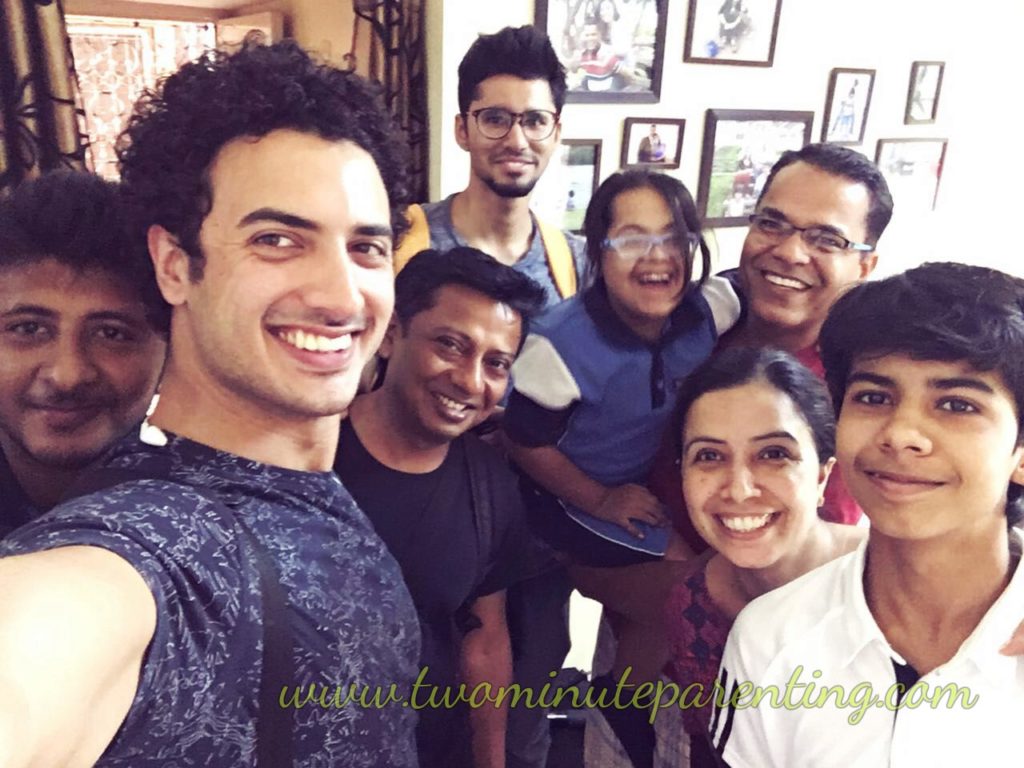
Any last words?
I feel people with Down syndrome or other special needs are equal citizens of this country, they are not ‘others’ who we need to sympathise with. So just like people who kill girl children need to be punished similarly any act of cruelty against people with down syndrome or discrimination should be legally dealt with. Also as human beings, we need to be more accepting of everyone.
And with these wonderful words, I said Goodbye to this amazing team. This documentary is most likely to be finished in the next few months and I am sure all of you are already looking forward to it as much as I am.



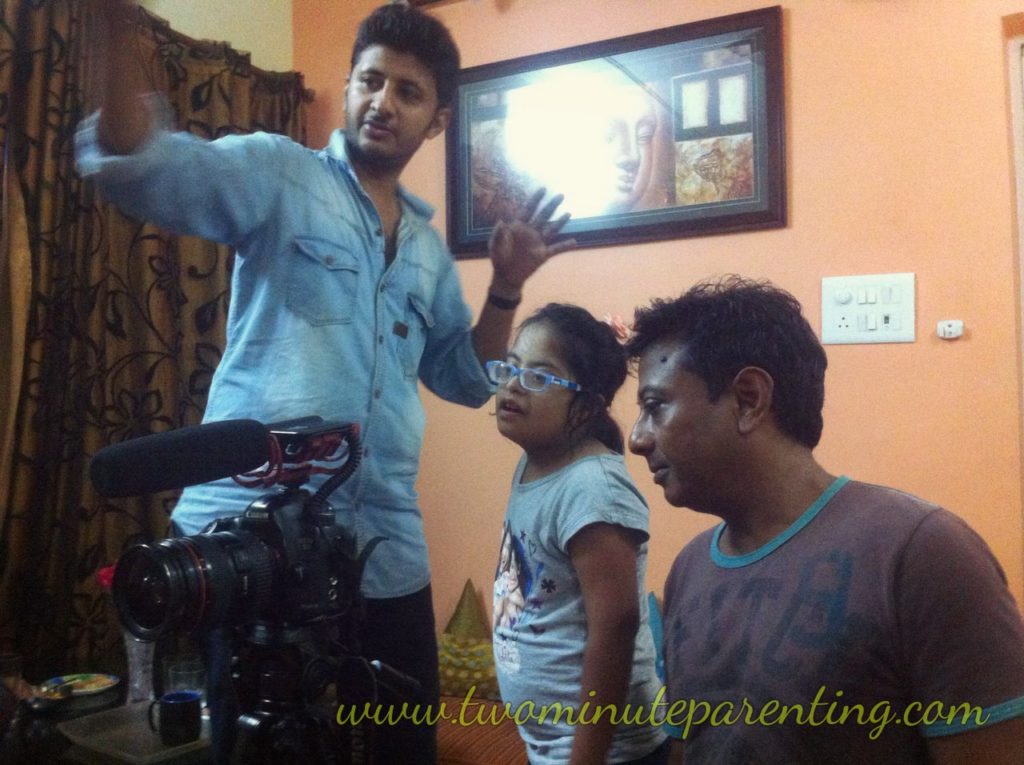
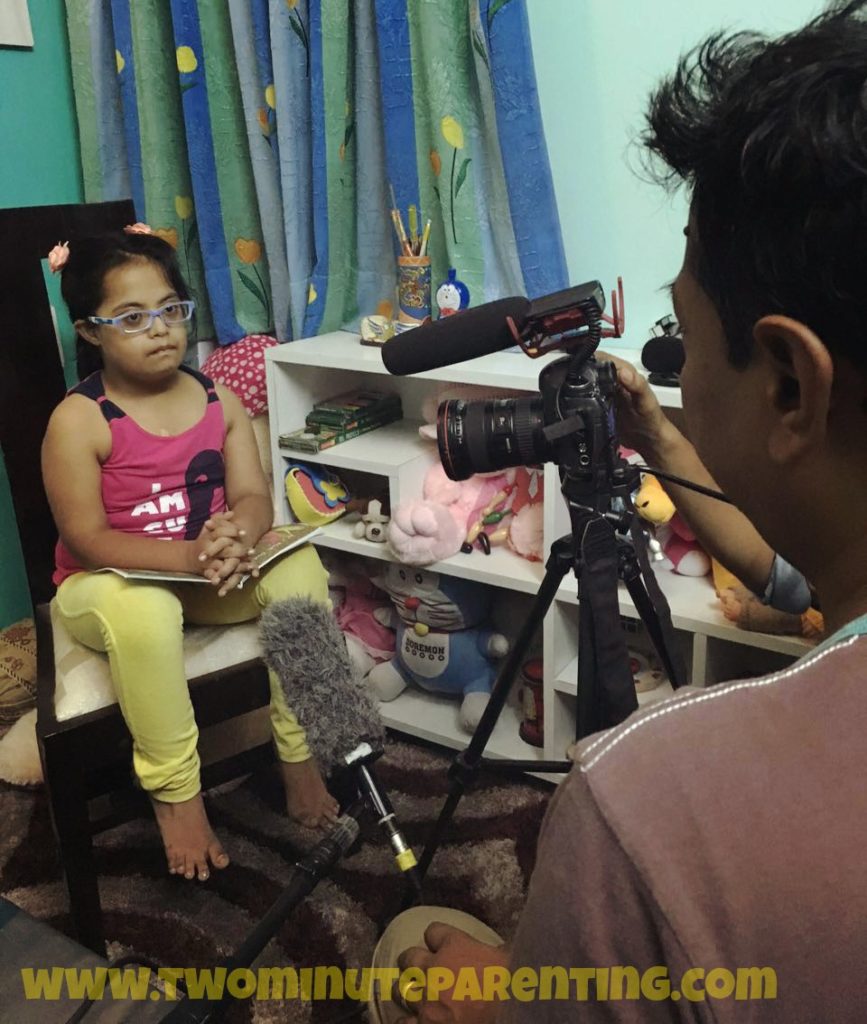




wow yr arshuuuuu………arhsia looking confident infront of camera………amazing yr… autograph pls……….mujhe bhi koi role dila de……….